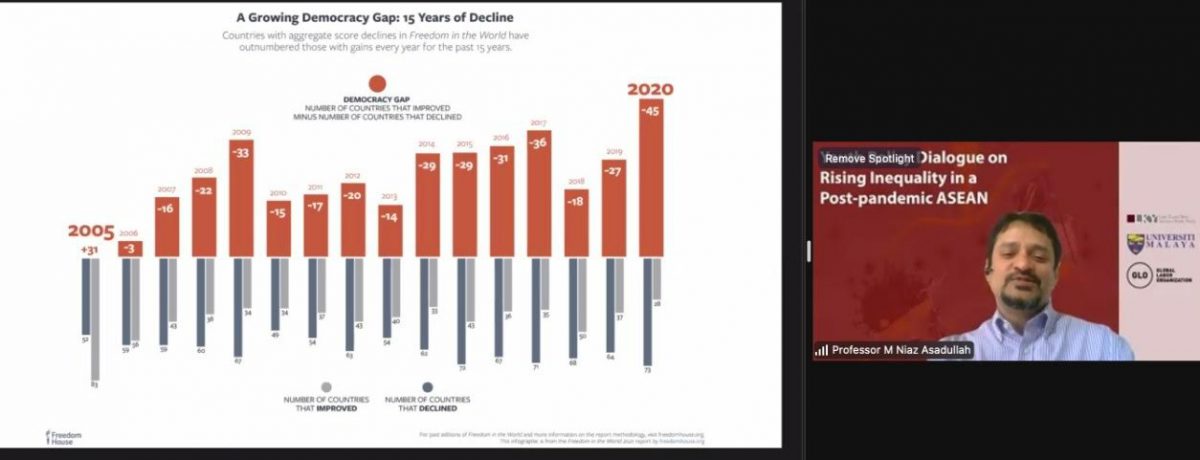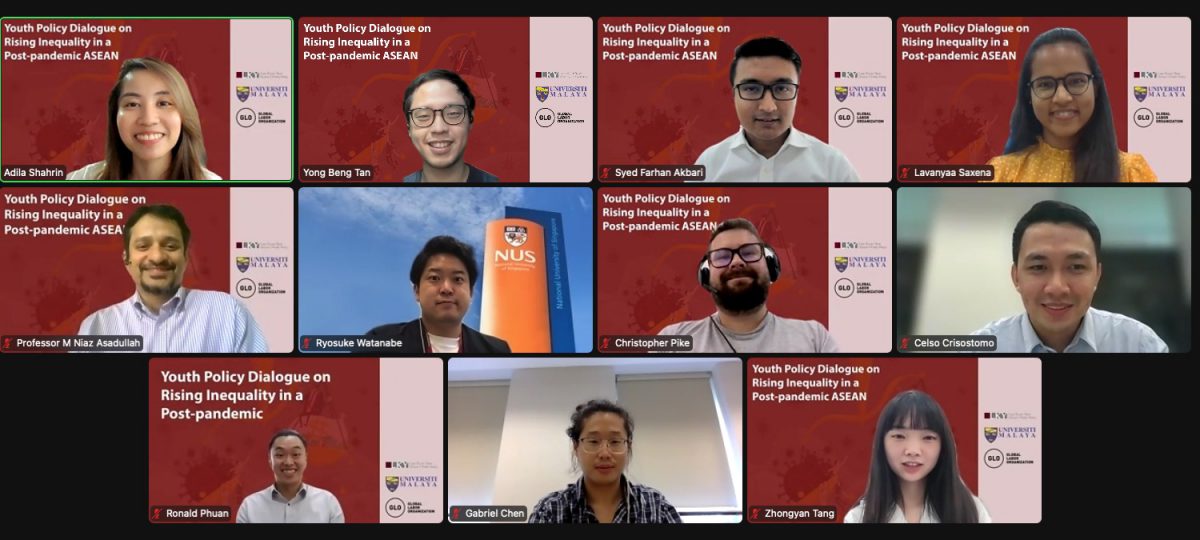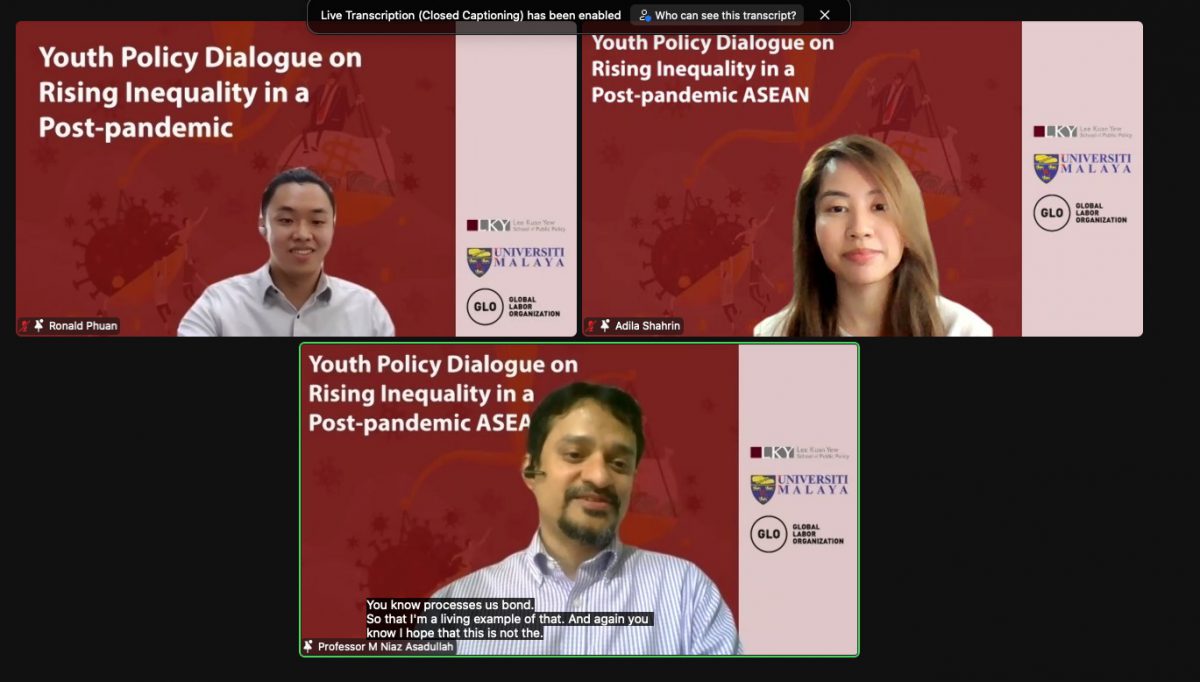On 25 March 2022, GLO Southeast Asia Lead Niaz Asadullah successfully organized the inaugural Youth Policy Dialogue on COVID-19 pandemic in the ASEAN region. The event was jointly hosted by students from the Lee Kuan Yew School of Public Policy and the University of Malaya. It is the first of its kind and coincided with the second anniversary of the pandemic.
Niaz Asadullah, who is also a Professor at the University Malaya, delivered the keynote lecture on the political economy of COVID-19 policy response, offering a global overview of some of the key challenges for policymakers in tackling the “new inequality” through progressive public policy. This was followed by a lively youth panel debate where 8 speakers from 7 countries deliberated on the proposition (debate motion) that “This house believes that ASEAN’s uncoordinated response to obtaining vaccines has increased regional inequality”.

The proposition team was led by students of Lee Kuan Yew School Lavanyaa Saxena (India), Celso Lastica Crisostomo Jr. (Philippines), Ryosuke Watanabe (Japan) and Gabriel Chen (Malaysia).
The opposition team members were Christopher Pike (UK), Zhongyan Tang (China), Syed Farhan Akbari (Bangladesh) and Ronald Phuan (Malaysia) — all students of the University of Malaya.

The Lee Kuan Yew School youth delegates (proposition team) argued that ASEAN’s uncoordinated response to COVID-19 led to very high cases of infections and deaths, which combined with economic lockdowns, stunted economic growth. This in turn has increased income inequality. Therefore they concluded that a coordinated response by state authorities in member countries in obtaining vaccines early and administering the vaccination campaign effectively would have helped avoid the spike in inequality.
Youth delegates from the University of Malaya (opposition team) contested the motion pointing out that the lack of coordination in the vaccine campaign and the rise in inequality is just a coincidence and does not imply that the former is driven by the latter. Besides, inequality is multifaceted in nature as is exemplified by the rise in education inequality during the pandemic — coordinated vaccine response would not have helped much in avoiding the learning loss as it had more to do with issues of digital infrastructure provisions and quality of state-run online programs. The opposition speakers also noted ASEAN’s limited organizational capacity to coordinate a response due to its doctrine of non-interference and the geo-politics of vaccine production and supply.
Among other highlights, youth members of the audience also took part by voting on the motion before and after the youth panel session. The pre-debate audience poll produced 85% votes in favour of the proposition. After the debate, follow up votes increased support for the opposition from 15% to 36%.
Overall, the event was a huge success attracting nearly 100 youth participants from all over Southeast Asia. It ended with an hour long lively Q&A session. It was extensively advertised in social media by prominent Asian youth networks such as Higher Education Malaysia Association (HEYA) and the Asian University Alliance (AUA). Here are some links – HEYA twitter post || AUA announcement || HEYA Facebook || HEYA Instagram || LinkedIn.
(Note: Lee Kuan Yew School of Public Policy is not part of the AUA)
At the end of the event, youth speakers received a certificate signed by GLO Southeast Asia Lead, Niaz Asadullah, and the Assistant Dean of Student Affairs of LKY School, Dr Tan-Soo Jie-Sheng.

Ends;

